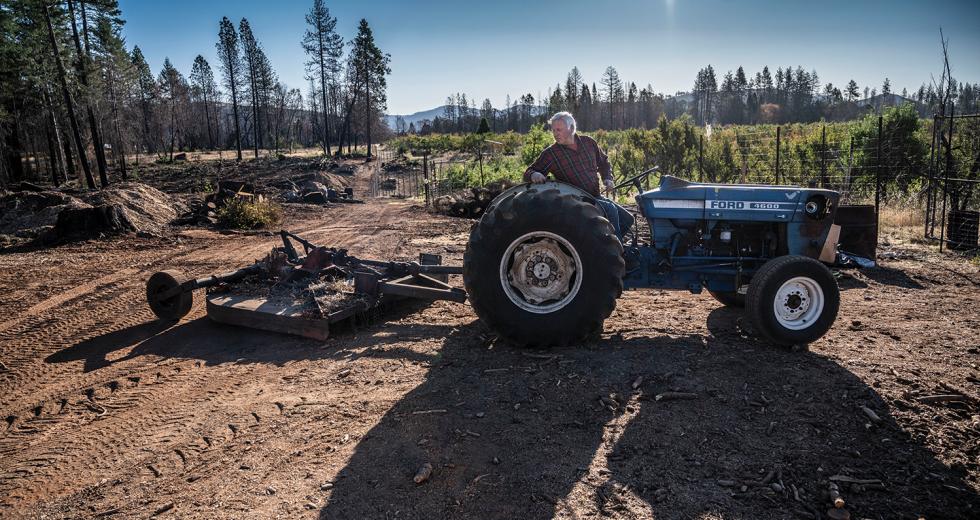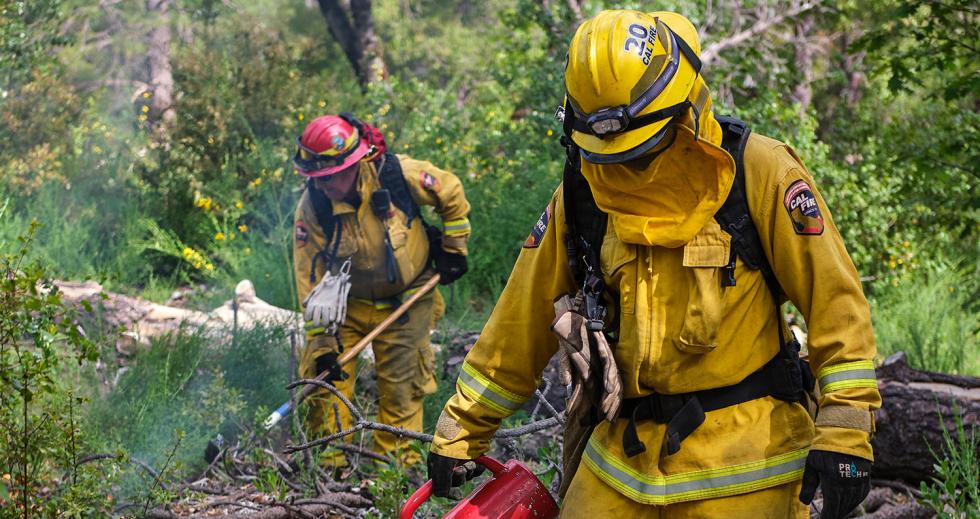On a cool summer day in Paradise, the kind that heralds the start of autumn, residents from across Butte County descended upon Noble Orchards with buckets, bags and boxes.
The Noble family, a longtime fixture in Paradise, established their business in 1921 when apple farms were the main economic driver of the small town nestled in the tall pines. Ninety-seven years later, the latest generation is dealing with a tragedy that not only nearly wiped out their family business, but has destroyed their idyllic town. With no way to store this year’s harvest, Jim and Laurie Noble have thrown open the proverbial doors to their family’s orchards, and invited the community to come and pick their own apples.
In the morning hours of Nov. 8, 2018, a sparking PG&E electrical tower near the town of Pulga ignited the nearby landscape. A dry forest and fast winds soon spread the blaze out of control. The only warning the residents of Paradise had was a thick smoke plume lofting over the trees that Tuesday morning as they readied themselves for the day ahead.
By 9 a.m., the towns of Magalia, Paradise, Concow and the unincorporated area of Butte County known as the Ridge were ablaze — the fire ultimately killed 86, and destroyed nearly 18,800 buildings and 153,000 acres. It is the deadliest and most expensive wildfire in California history. The total damage of the Camp Fire — so named for the location of that sparking electrical tower on Camp Creek Road — was $16.5 billion. One-quarter of the damage, $4 billion, was not insured.
The Nobles were some of the lucky ones. Though the fire came onto their property and burned down a fair amount of the grandfatherly ponderosa pines that line it, the majority of their orchards — their livelihood — survived. But their home, the cold storage building and an original building Jim Noble’s grandfather built in the 1930s were incinerated. Many of their neighbors were even less fortunate. More than 90 percent of the residential buildings in Paradise became ruins.
Overnight, the once-thriving mountain town was reduced to ghosts and ashes. But the spirit of what once made this town thrive has survived: Businesses like Noble Orchards are finding a way to soldier on, and many are planning to rebuild, but there are just as many who have eyed the challenges and decided to move on. And who can blame them? Re-establishing Paradise’s diverse microeconomy will not be a job for the faint of heart.
The biggest problem facing business owners is not construction costs, it’s not insurance and it’s not post-traumatic stress — it’s a lack of customers. No one knows what to do first: Build the customer base and create a demand for business, or rebuild the businesses and see if the customers follow?
The Rocky Road to Recovery
“The reports of our demise are premature,” says Monica Nolan, executive director of the Paradise Ridge Chamber of Commerce, which supports business on the Ridge. “Business recovery has largely been defined by those businesses that didn’t suffer the devastating, catastrophic loss of being burnt to the ground. Those that have (recovered) had the corporate backing to withstand a decline in customers.”
“The town is going to take at least five years to see successful businesses, and I can’t wait that long.” Manuel Tovalin, owner, Cafe de Paradiso
Nolan and her team have been working nearly around the clock since the fire to help businesses recover. For a while, they shared offices and desks with the nearby town of Chico’s chamber of commerce until their own building was safe for habitation again.
“We’re providing as much support as we can to those businesses that are open, without sort of broadcasting, ‘Come up to Paradise and open your business right now,’” Nolan says. “It’s more like, ‘We are here to support you and help guide and put you in contact with the resources available to you.’ We want to give them every chance of success.”
The town of Paradise has been promised $13 million annually for the next 10 years from state and federal legislators to help cover the town government’s operating expenses. The money would help stabilize revenues due to the loss of sales tax and allow for much-needed additional hires while recovery continues. The town also is struggling with basic necessities like water. The Paradise Irrigation District still has a no-drink advisory due to benzene contamination, and water has to be brought into town in jugs or stored in tanks.
More than 600 businesses have been reported as either damaged or destroyed by the Camp Fire, according to Cal Fire Butte County, including the loss of Feather River Hospital, multiple gas stations and fast-food restaurants, a hotel and a large shopping center anchored by a Safeway.
But even the town’s chamber executives aren’t sure exactly how many businesses were lost to the fire. “The town of Paradise did not have business license regulation until very recently before the fire, and so a lot of businesses were not in compliance with regulations,” Nolan says. She estimated the loss of the commercial sector to be about two-thirds. “We’re still gathering all the data on whether they’ve reopened and where they’ve reopened.”
Laurie and Jim Noble at their orchards in Paradise in September.
(Photo by Carin Dorghalli)
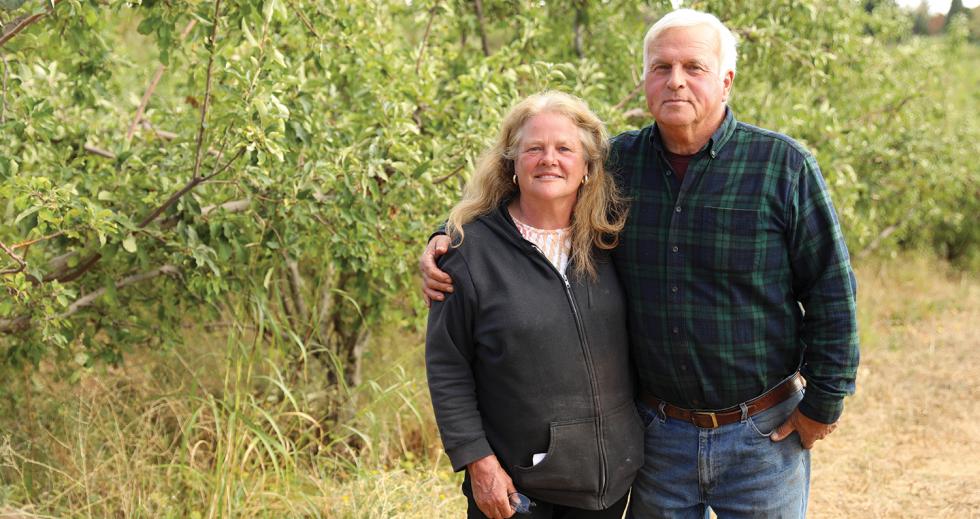
Laurie Noble, co-owner of Noble Orchards, says they had plans 20 days after the fire to rebuild their cold storage unit, but “that doesn’t mean any construction has started on it.”
First the dead trees have to be brought down, and they’re still waiting for a logger to get back to them about the project. Then they have to deal with all of the debris from that process. Only then can they start to rebuild, and finding a contractor to take it on will be no small task in a town overrun with need-it-now projects.
“It’s just one little baby step at a time,” Noble says. “How do we move forward? How do we establish housing? In our case, we know the cold storage is absolutely critical to the operation, so that is taking priority over a house.”
Down the Hill
Skyway Road, a long stretch of old highway used by many of the 27,000 residents fleeing the fire that November day, leads directly into Chico. At the final mile at the end of the hill and around the curve, a large billboard sponsored by Dutch Bros. Coffee towers overhead with a message: “We Love Paradise” — a friendly reminder that the quiet college town of Chico has absorbed 19,000 of their former neighbors in the past year.
It’s here, just across the street from that billboard, that a beloved Paradise institution has decided to relocate. Cafe de Paradiso reopened in August to local acclaim after serving family-style Mexican dishes to its former community for almost 25 years in Paradise.
Owner Manuel Tovalin says he didn’t want to change the menu or the atmosphere, so evacuees could have a touch of their former lives, but he just wasn’t willing to risk his hard-earned and imminent retirement — nor his children’s inheritance — in the murky economy of Paradise as it rebuilds. “I had my life basically planned out, but I guess God didn’t want us to keep going over there,” Tovalin says. “I had to relocate because there are no people in Paradise.”
The restaurant has become a de facto slice of Paradise, just 10 miles down the hill. Tovalin’s daughter Lucia says a lot of customers have come into the restaurant and started to cry. “They say it reminds them of Paradise,” Lucia says.
Manuel Tovalin serves customers at Cafe de Paradiso in Chico in
October. (Photo by Carin Dorghalli)
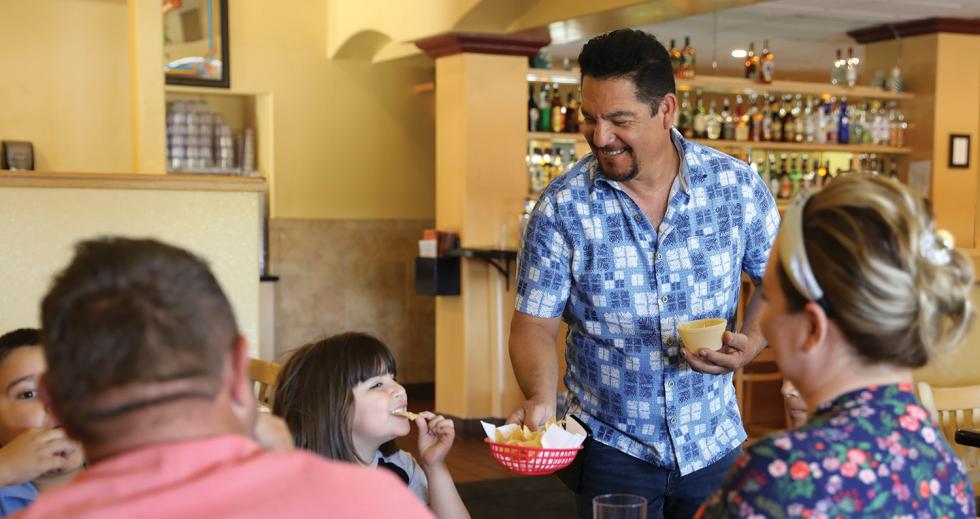
Tovalin’s home was lost to the fire, though the restaurant was not. But with no place to live in Paradise, when he found a low-slung building near a busy Highway 99 on-ramp, he jumped at the opportunity to rebuild his business in Chico. To add further grief and trauma, Tovalin lost his wife and business partner to cancer a month before he reopened. One of her final requests, he says, was that the family move forward with opening the restaurant in Chico.
“The town is going to take at least five years to see successful businesses, and I can’t wait that long,” Tovalin says. He offered jobs to what remained of his old kitchen and wait staff, hired new ones to fill the gaps of those who had moved away, and opened Cafe de Paradiso’s doors in August. “I miss everyone I knew, but a lot of them come here, and we’re happy to see each other.”
But for every success story, there’s another of defeat: Paradise was long considered a cheaper option for housing than Chico, and many business owners, having lost their homes in the fire, have had to close their stores in neighboring cities.
Corporate Recovery
On the day of the fire, a group of residents and firefighters who were unable to evacuate in time sheltered in a wide swath of an asphalt parking lot, surrounded by fire trucks and their cars, as they huddled together and waited for the fire line to pass over.
The property whose parking lot provided enough defensible space to keep them all alive is owned by Sacramento-based Ethan Conrad Properties — a company known for its business model of rejuvenating commercial properties in disrepair. Though the Kmart had filed for bankruptcy prior to the fire and will not return to that location, Ethan Conrad Properties has no plans to sell the strip mall in Paradise, anchored by a reopened and currently thriving SaveMart, another anchor in the complex.
“It’s just one little baby step at a time. How do we move forward? How do we establish housing? In our case, we know the cold storage is absolutely critical to the operation, so that is taking priority over a house.” Laurie Noble, co-owner, Noble Orchards
“One of the things I’ve been hearing from a lot of business owners in the area is that the businesses that are going to thrive and succeed are the ones that cater to the workers,” says Ross Tolbert, director of property management for Ethan Conrad. “Obviously, there are people who are planning on returning to Paradise and rebuilding or in the process of rebuilding now,” Tolbert says, but the next nearest option is a 30-minute drive away, so the need for some business is already there.
Tolbert says Ethan Conrad has been getting a lot of interest from former business owners in the town who are “stepping their toe out and asking” about possibly renting property. But, even with that, and the majority of the old businesses still operating in their commercial park, Tolbert hedges at the idea of Paradise making a quick recovery.
“I don’t think anybody knows the answer,” he says. “Nobody. I think people wish they would know the answer, but is it going to be three years, or is it going to be five?”
Fired Up and Ready to Go
Before Nov. 8, the largest employer in Paradise was Feather River Hospital, with an annual revenue of $230 million. Owned by Adventist Health, the medical facility had a staff of 1,300 and contributed nearly 30 percent to Paradise’s economy. Though the hospital was damaged beyond use, the emergency room survived, as did one of three nearby health clinics. Through Senate Bill 156, the ER is allowed to remain open by partnering with Yuba City’s Rideout Memorial Hospital (also in the Adventist Health system) 50 miles away, but that’s all that remains of a once-thriving medical community in Paradise that once served 10,000.
Nicki Jones opened Nic’s in late September next door to her
Bobbi’s Boutique. (Photo by Carin Dorghalli)
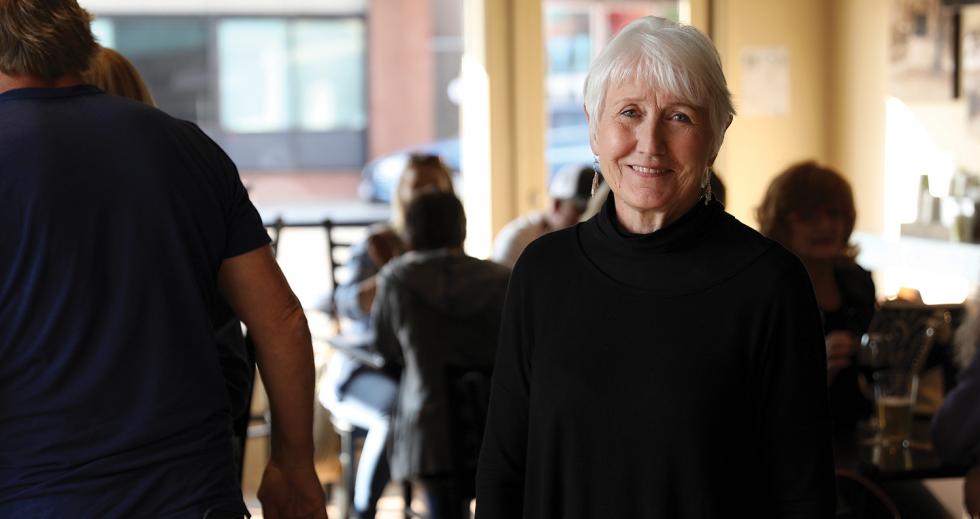
Though Adventist hopes and plans to rebuild the damaged portions of the hospital, employment there will not be anywhere near what it previously was for many years to come, said Richard Thorp, a physician and president of the Paradise Medical Group, speaking to Politico in June. Now, the largest employers are the construction and demolition companies whose crews rumble up and down the hill into town, in an endless line of dump trucks and trailers.
But on a corner of Skyway, just down the street from a parcel of burned storefronts — and beyond that, another and another — is the town’s newest business venture. Outside, it’s a rather nondescript beige building. A piece of the roof burned during the fire, but the small commercial complex escaped relatively undamaged — a testament to the capricious nature of the Camp Fire.
Inside, it’s homey, and the walls are lined with pictures of Paradise as it was in days long gone by, and a small but industrious staff of locals shine glass sandwich cases until they gleam. “It was important to me,” says Nic’s Restaurant owner Nicki Jones, gesturing at the photos on the walls. “I want people to feel at home. I want people to feel normal. That was my goal.”
Jones, who also owns Bobbi’s Boutique next door, is something of a local hero. There’s fewer than 4,000 residents in town — though that number is slowly growing, as residential building takes priority in much of the burn scar — but she is taking a gamble and leading the vanguard of business owners returning to Paradise.
“I’m here because I want to be an inspiration to other people in business. I respect everybody else’s decision, but I’m taking a calculated risk because there’s a need for this.” Nicki Jones, owner, Nic’s Restaurant
But it’s not without risk: On the day of Nic’s grand opening in late September, staff was making plans in case a PG&E planned power shutoff affected the town. Jones waved away her staff’s concerns. Paradise wasn’t on the warning list yet, she reminded them breezily, “and it won’t happen until this evening after we close.”
For Jones, returning to Paradise was never in question. “From the time I moved here 20 years ago, I’ve loved this town. I felt at home,” she says. “I’m about the community, and I love this town.”
Nic’s, she hopes, will be a place for the community to leave their dusty work boots and troubles at the door. “I’m here because I want to be an inspiration to other people in business,” she says. “I respect everybody else’s decision, but I’m taking a calculated risk because there’s a need for this.”
And playing the guessing game of when and how Paradise will recover simply isn’t in her vocabulary. “I don’t want to talk about it,” Jones says. “I want to do it.”
—
Get this and other stories delivered to your inbox weekly: Sign up for our free email newsletters by clicking or tapping here.
Recommended For You
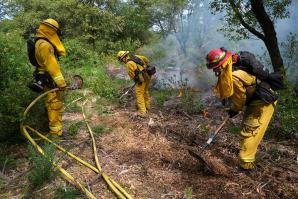
Beating the Burn
California’s plan to deal with deadly and devastating wildfires — including controlled burns, thinning and a restoration economy — is ambitious; is the state up to the task?
Past approaches to forest fires have been a misinformed regime of fire suppression: extinguishing all flames quickly. Now California’s forests are overgrown tinderboxes-in-waiting; the approach is changing, but there’s a lot of work to do.
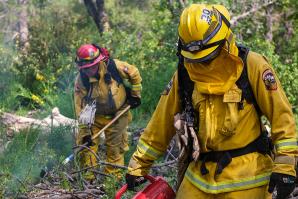
Beating the Burn: How We Got Here
An abbreviated history of firefighting efforts in the Golden State
When lightning sparked fires in the 1850s, they were left to burn, naturally clearing out dry fuels. Just a few decades later, officials started shifting toward a strategy of fire suppression.
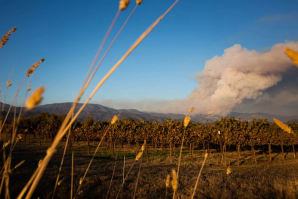
In California’s Wildfire Zones, Tales of Trauma and Resilience
Volunteers share their stories of bravery, resilience and trauma in the face of a growing wildfire threat in Northern California.
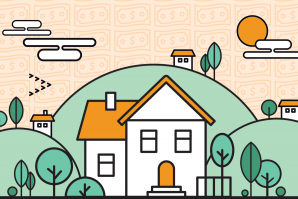
After Torrential Wildfires, Insurance Woes for Homeowners
The Camp Fire has made it more expensive to own a home in rural areas
The most striking effect from the Camp Fire is rising fire insurance costs for residents in areas where wildfire risk is high. Some traditional insurance companies are declining to offer services in these locations.



